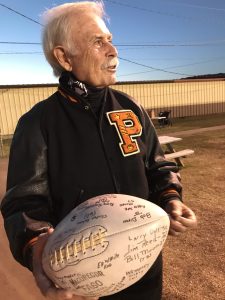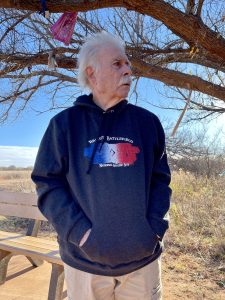Julius Caesar was assassinated by his fellow Romans on March 15, 44 B.C. Brutus and his co-conspirators used numerous stab wounds for the job. Our government is using the unrelenting Chinese torture of taxes: drip, drip, drip until our Body Politic is exsanguinated.
At least Jules did not have to inflict his own wounds. Our governments, federal, state and county, require us to report upon ourselves and furnish our public “servants” with the means of ruining our lives if we do not.
It is not like any of us does not realize we have an obligation to contribute to public services. I like driving on paved roads and drinking clean water. What turns our gratitude for our collective governments’ provision of benefits to resentment is our total loss of control over how our hard-earned income becomes lucre. Then it is wasted and mismanaged or, worst of all, given to people our government favors so they can use it to abuse people we do not know.
If our government would use our tax money on services for us, most of us would accept those decisions as necessary even if we might make different choices as to how our money is spent. Most Americans champion democracy and democracy means we each do not always get our way. We get it.
However, it is concerning that our country’s Gross Domestic Product for 2023 was over 27 trillion dollars; federal tax collections were over 4 trillion dollars; state tax collections were nearly 4 trillion dollars and local tax revenues were almost 2 trillion. Yet our federal yearly budget deficit from 2022 to 2023 ballooned up by $320 billion to $1.7 trillion. And our total national debt is currently $34 trillion. I think Peg and I could probably manage to balance our budget with $27 trillion, or maybe only a mere billion or so.
How can our trillions of dollars of hard work result in even more exorbitant debt? It is like we all, ♪ owe our souls to the Company Store ♪ and our government runs the Store. What happened to our capitalistic system? The governmental workers we have hired at exorbitant rates to manage our money are like socialists on methamphetamine. As Great Britain’s Margaret Thatcher said about the soft-hearted and soft-headed British socialists, “The problem with socialism is that you eventually run out of other people’s money”, in this case, OURS!
When our government graciously gives the money we have earned to people less fortunate, most of us clamp our teeth and bear it. However, when our “public servants” squander our resources to enable other countries to kill people with whom we have no quarrel, we take umbrage.
We are a generous nation, but we object to being complicit in destroying innocents, especially children. Also, even if we are better off than some, we have plenty of our own needs that should be addressed. Charity should at least begin at home.
Anyway, Gentle Reader, just as you, these dark thoughts reappear every year at this time. So, I guess the Pollyanna approach is the only rational option when our government has a stranglehold on all our other options. Maybe Peg and I should listen to the guidance set forth in Matthew, Chapter 5, verse 40 and voluntarily send in more money:
“[I]f any one would sue you and take your coat, let him have your cloak as well.”
On the other hand, even the Book of Matthew may be conflicted by our government’s voracious appetite for our tax money, because only two chapters later we are warned:
“Do not give dogs what is holy; and do not throw your pearls before swine, lest they trample them underfoot
and turn to attack you
….
Beware of false prophets, who come to you in sheep’s clothing but inwardly are ravenous wolves.
You will know them by their fruits.”
Matthew, Ch.7, vs. 6, 15 and 16.
Of course, our governmental “servants” would not be amused if we sent in a check in the amount we believe they should receive. People such as Henry David Thoreau might be courageous enough to go to jail for his non-tax beliefs, but even Jesus advised:
“Pay all of them their dues, taxes to whom taxes are due,
Revenue to whom revenue is due ….”
Book of Romans, Ch. 13, vs. 7.
My conclusion is that even Jesus saw no hope for relief from paying taxes and our government wasting them. Ok, I give, the check’s in the mail.




